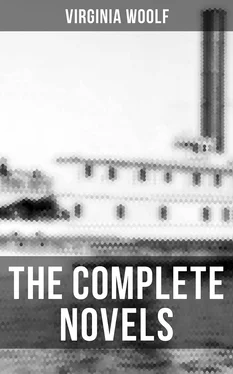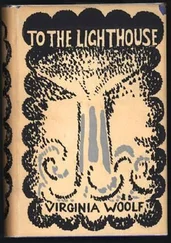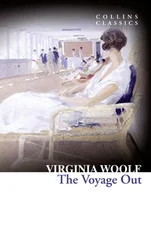“And would you really be content without pretty frocks and sweets and all the things young ladies like?” asked Mr. Perrott, concealing a certain amount of pain beneath his ironical manner.
“I’m not a young lady,” Evelyn flashed; she bit her underlip. “Just because I like splendid things you laugh at me. Why are there no men like Garibaldi now?” she demanded.
“Look here,” said Mr. Perrott, “you don’t give me a chance. You think we ought to begin things fresh. Good. But I don’t see precisely—conquer a territory? They’re all conquered already, aren’t they?”
“It’s not any territory in particular,” Evelyn explained. “It’s the idea, don’t you see? We lead such tame lives. And I feel sure you’ve got splendid things in you.”
Hewet saw the scars and hollows in Mr. Perrott’s sagacious face relax pathetically. He could imagine the calculations which even then went on within his mind, as to whether he would be justified in asking a woman to marry him, considering that he made no more than five hundred a year at the Bar, owned no private means, and had an invalid sister to support. Mr. Perrott again knew that he was not “quite,” as Susan stated in her diary; not quite a gentleman she meant, for he was the son of a grocer in Leeds, had started life with a basket on his back, and now, though practically indistinguishable from a born gentleman, showed his origin to keen eyes in an impeccable neatness of dress, lack of freedom in manner, extreme cleanliness of person, and a certain indescribable timidity and precision with his knife and fork which might be the relic of days when meat was rare, and the way of handling it by no means gingerly.
The two parties who were strolling about and losing their unity now came together, and joined each other in a long stare over the yellow and green patches of the heated landscape below. The hot air danced across it, making it impossible to see the roofs of a village on the plain distinctly. Even on the top of the mountain where a breeze played lightly, it was very hot, and the heat, the food, the immense space, and perhaps some less well-defined cause produced a comfortable drowsiness and a sense of happy relaxation in them. They did not say much, but felt no constraint in being silent.
“Suppose we go and see what’s to be seen over there?” said Arthur to Susan, and the pair walked off together, their departure certainly sending some thrill of emotion through the rest.
“An odd lot, aren’t they?” said Arthur. “I thought we should never get ’em all to the top. But I’m glad we came, by Jove! I wouldn’t have missed this for something.”
“I don’t like Mr. Hirst,” said Susan inconsequently. “I suppose he’s very clever, but why should clever people be so—I expect he’s awfully nice, really,” she added, instinctively qualifying what might have seemed an unkind remark.
“Hirst? Oh, he’s one of these learned chaps,” said Arthur indifferently. “He don’t look as if he enjoyed it. You should hear him talking to Elliot. It’s as much as I can do to follow ’em at all…. I was never good at my books.”
With these sentences and the pauses that came between them they reached a little hillock, on the top of which grew several slim trees.
“D’you mind if we sit down here?” said Arthur, looking about him. “It’s jolly in the shade—and the view—” They sat down, and looked straight ahead of them in silence for some time.
“But I do envy those clever chaps sometimes,” Arthur remarked. “I don’t suppose they ever…” He did not finish his sentence.
“I can’t see why you should envy them,” said Susan, with great sincerity.
“Odd things happen to one,” said Arthur. “One goes along smoothly enough, one thing following another, and it’s all very jolly and plain sailing, and you think you know all about it, and suddenly one doesn’t know where one is a bit, and everything seems different from what it used to seem. Now to-day, coming up that path, riding behind you, I seemed to see everything as if—” he paused and plucked a piece of grass up by the roots. He scattered the little lumps of earth which were sticking to the roots—“As if it had a kind of meaning. You’ve made the difference to me,” he jerked out, “I don’t see why I shouldn’t tell you. I’ve felt it ever since I knew you…. It’s because I love you.”
Even while they had been saying commonplace things Susan had been conscious of the excitement of intimacy, which seemed not only to lay bare something in her, but in the trees and the sky, and the progress of his speech which seemed inevitable was positively painful to her, for no human being had ever come so close to her before.
She was struck motionless as his speech went on, and her heart gave great separate leaps at the last words. She sat with her fingers curled round a stone, looking straight in front of her down the mountain over the plain. So then, it had actually happened to her, a proposal of marriage.
Arthur looked round at her; his face was oddly twisted. She was drawing her breath with such difficulty that she could hardly answer.
“You might have known.” He seized her in his arms; again and again and again they clasped each other, murmuring inarticulately.
“Well,” sighed Arthur, sinking back on the ground, “that’s the most wonderful thing that’s ever happened to me.” He looked as if he were trying to put things seen in a dream beside real things.
There was a long silence.
“It’s the most perfect thing in the world,” Susan stated, very gently and with great conviction. It was no longer merely a proposal of marriage, but of marriage with Arthur, with whom she was in love.
In the silence that followed, holding his hand tightly in hers, she prayed to God that she might make him a good wife.
“And what will Mr. Perrott say?” she asked at the end of it.
“Dear old fellow,” said Arthur who, now that the first shock was over, was relaxing into an enormous sense of pleasure and contentment. “We must be very nice to him, Susan.”
He told her how hard Perrott’s life had been, and how absurdly devoted he was to Arthur himself. He went on to tell her about his mother, a widow lady, of strong character. In return Susan sketched the portraits of her own family—Edith in particular, her youngest sister, whom she loved better than any one else, “except you, Arthur…. Arthur,” she continued, “what was it that you first liked me for?”
“It was a buckle you wore one night at sea,” said Arthur, after due consideration. “I remember noticing—it’s an absurd thing to notice!—that you didn’t take peas, because I don’t either.”
From this they went on to compare their more serious tastes, or rather Susan ascertained what Arthur cared about, and professed herself very fond of the same thing. They would live in London, perhaps have a cottage in the country near Susan’s family, for they would find it strange without her at first. Her mind, stunned to begin with, now flew to the various changes that her engagement would make—how delightful it would be to join the ranks of the married women—no longer to hang on to groups of girls much younger than herself—to escape the long solitude of an old maid’s life. Now and then her amazing good fortune overcame her, and she turned to Arthur with an exclamation of love.
They lay in each other’s arms and had no notion that they were observed. Yet two figures suddenly appeared among the trees above them. “Here’s shade,” began Hewet, when Rachel suddenly stopped dead. They saw a man and woman lying on the ground beneath them, rolling slightly this way and that as the embrace tightened and slackened. The man then sat upright and the woman, who now appeared to be Susan Warrington, lay back upon the ground, with her eyes shut and an absorbed look upon her face, as though she were not altogether conscious. Nor could you tell from her expression whether she was happy, or had suffered something. When Arthur again turned to her, butting her as a lamb butts a ewe, Hewet and Rachel retreated without a word. Hewet felt uncomfortably shy.
Читать дальше












